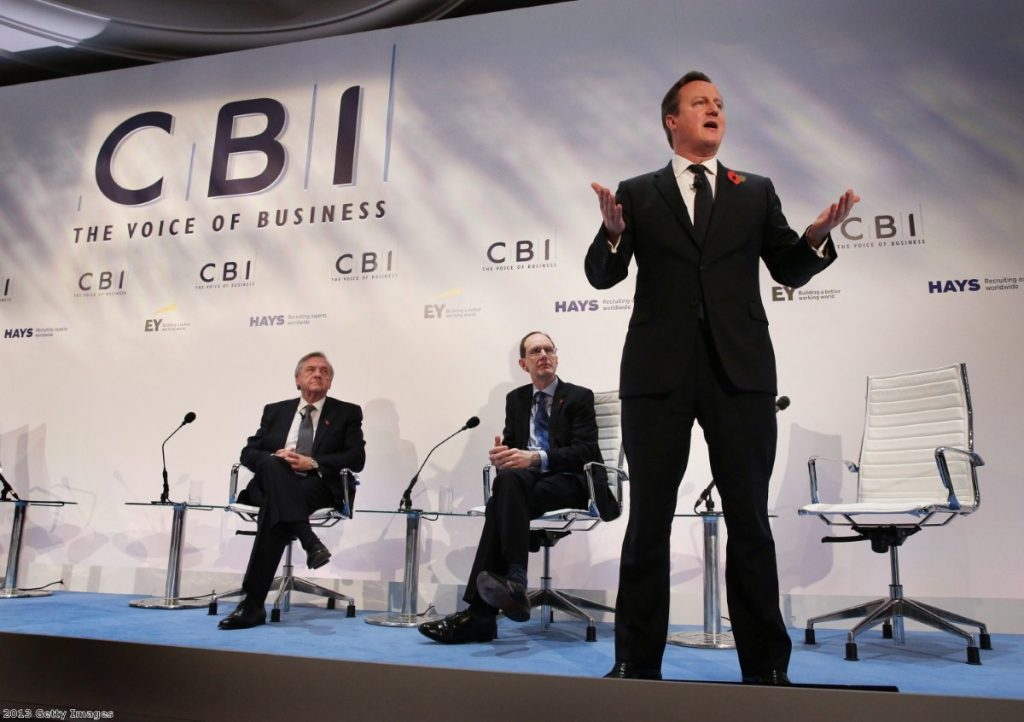The living wage: David Cameron deserts the centre ground
The living wage was the perfect opportunity for David Cameron to show that he has reformed the Conservative party. Once again, he has failed to take it.
It's easy to forget now, but David Cameron was once a great moderniser. After losing three general elections, he was an almost lone voice in understanding the Tories needed to reform or die.
And it wasn't just about hugging hoodies and huskies. Cameron understood the Tories needed to take big steps to show they understood the concerns of voters across the UK.
And that understanding extended to living standards. In a speech shortly before the last election he said the living wage was "an idea whose time has come" and pledged to do far more to ensure that low paid workers were paid a fair wage.


He was then enthusiastically backed by London mayor Boris Johnson and several Tory backbenchers who all understood both the moral and economic case for raising low pay. This pledge has now been all but forgotten and Cameron has placed his party right at the forefront of defending poverty pay.
It is mystifying that he has allowed this to happen. Ed Miliband's proposals to give tax rebates to companies paying the living wage should be fairly uncontroversial. Many business leaders have supported the idea and it was even reportedly under consideration by Downing Street just two months ago.
Indeed, the policy is so uncontroversial that figures in the Labour party are concerned that it simply won't go far enough. So it is a sign of just how far to the right Cameron has allowed his party to drift, that even this rather mild business-friendly policy is judged to be part of a dangerous Marxist plot.
Day by day Cameron is deserting the centre ground to Labour. He is also increasingly deserting it to his old friend and rival in City Hall. Boris's recent comments on the benefits of immigration and the living wage will no doubt be dismissed by Downing Street, but they show that he alone understands the need for the Conservative party to modernise if it is to survive.
Johnson's Telegraph columns have made him a favourite of the Tory right, but as mayor he has been a far more centrist figure than many in his party understand. On immigration, infrastructure investment, gay rights, housing, the living wage and countless other areas, Boris has placed himself several miles to the left of the modern Conservative party. And while his party's fortunes continue to flounder, Boris's have continued to rise.
Whether it's delivering a speech in favour of the living wage, or wearing a pink stetson at the front of the Pride parade, Boris appears at ease with modern Britain in a way that David Cameron increasingly does not.
When Miliband accused Cameron two weeks ago of neither meeting nor understanding the "ordinary people of this country" it resonated in a way few of his attacks on the prime minister have done before.
Cameron desperately needs to alter this perception if he has any hopes of recovering his party's fortunes. Acting on his previous pledge to lift people out of poverty pay would have been just one important step to achieving that. Instead he has decided to take several more steps back.
The ins-and-outs of Labour's living wage policy will go over the heads of most voters as will the ins-and-outs of the Conservative party's opposition to it. But when all else is forgotten, one impression will be remembered: Ed Miliband and Boris Johnson were in favour of people being paid enough to live. David Cameron was not.









